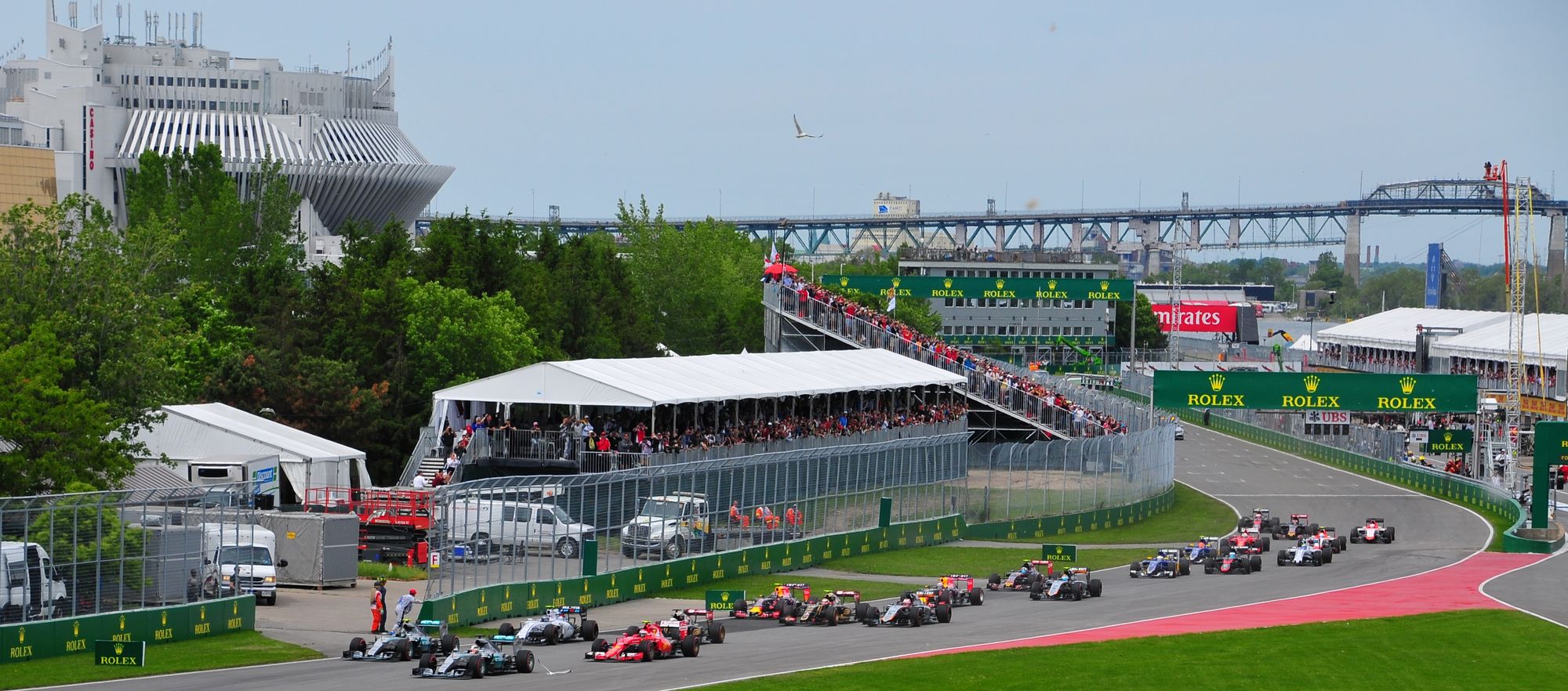Montreal Main Attractions

This is a consideration page in the Montreal targeted journey.
Montreal was referred to as "Canada's Cultural Capital" by Monocle magazine.[28] The city is Canada's centre for French-language television productions, radio, theatre, film, multimedia, and print publishing. Montreal's many cultural communities have given it a distinct local culture. Montreal was designated as the World Book Capital for the year 2005 by UNESCO.[193]
Montreal Fireworks Festival is the world's largest annual fireworks festival. The city hosts a number of festivals annually.
Being at the confluence of the French and the English traditions, Montreal has developed a unique and distinguished cultural face. The city has produced much talent in the fields of visual arts, theatre, dance, and music, with a tradition of producing both jazz and rock music. Another distinctive characteristic of cultural life is the vibrancy of its downtown, particularly during summer, prompted by cultural and social events, including its more than 100 annual festivals, the largest being the Montreal International Jazz Festival which is the largest jazz festival in the world. Other popular events include the Just for Laughs (largest comedy festival in the world), Montreal World Film Festival, Les FrancoFolies de Montréal, Nuits d'Afrique [fr], Pop Montreal, Divers/Cité, Fierté Montréal and the Montreal Fireworks Festival, and many smaller festivals. The city of Montreal is also widely recognized for its diverse and vibrant night life, which is considered a vital part of the local cultural ecosystem.
A cultural heart of classical art and the venue for many summer festivals, the Place des Arts is a complex of different concert and theatre halls surrounding a large square in the eastern portion of downtown. Place des Arts has the headquarters of one of the world's foremost orchestras, the Montreal Symphony Orchestra. The Orchestre Métropolitain du Grand Montréal and the chamber orchestra I Musici de Montréal are two other well-regarded Montreal orchestras. Also performing at Place des Arts are the Opéra de Montréal and the city's chief ballet company Les Grands Ballets Canadiens. Internationally recognized avant-garde dance troupes such as Compagnie Marie Chouinard [fr], La La La Human Steps, O Vertigo [fr], and the Fondation Jean-Pierre Perreault [fr] have toured the world and worked with international popular artists on videos and concerts. The unique choreography of these troupes has paved the way for the success of the world-renowned Cirque du Soleil.
View of the Notre-Dame Basilica from Place d'Armes. The number of churches in Montreal led it to be called "the city of a hundred steeples".
Nicknamed la ville aux cent clochers (the city of a hundred steeples), Montreal is renowned for its churches. There are an estimated 650 churches on the island, with 450 of them dating back to the 1800s or earlier.[194] Mark Twain noted, "This is the first time I was ever in a city where you couldn't throw a brick without breaking a church window."[195] The city has four Roman Catholic basilicas: Mary, Queen of the World Cathedral, Notre-Dame Basilica, St Patrick's Basilica, and Saint Joseph's Oratory. The Oratory is the largest church in Canada, with the second largest copper dome in the world, after Saint Peter's Basilica in Rome.[196]
Beginning in the 1940s, Quebec literature began to shift from pastoral tales romanticising the French-Canadian country-side to writing set in the multicultural city of Montreal. Notable pioneering works describing the character of the city include Gabrielle Roy's 1945 novel Bonheur D'Occasion, translated as The Tin Flute, and Gwethalyn Graham's 1944 novel Earth and High Heaven. Subsequent writers of fiction who have set their work in Montreal have included Mordecai Richler, Claude Jasmin, Francine Noel, and Heather O'Neill, among many others.
Sports
Main article: Sports in Montreal
The most popular sport is ice hockey. The professional hockey team, the Montreal Canadiens, is one of the Original Six teams of the National Hockey League (NHL), and has won an NHL-record 24 Stanley Cup championships. The Canadiens' most recent Stanley Cup victory came in 1993. They have major rivalries with the Toronto Maple Leafs and Boston Bruins, both of which are also Original Six teams, and with the Ottawa Senators, the closest team geographically. The Canadiens have played at the Bell Centre since 1996. Prior to that they played at the Montreal Forum.
Opened in 1996, the Bell Centre is a sports and entertainment complex and the home arena for the Montreal Canadiens.
The Montreal Alouettes of the Canadian Football League (CFL) play at Molson Stadium on the campus of McGill University for their regular-season games. Late season and playoff games are played at the much larger, enclosed Olympic Stadium, which also hosted the 2008 Grey Cup. The Alouettes have won the Grey Cup seven times, most recently in 2010. The Alouettes has had two periods on hiatus. During the second one, the Montreal Machine played in the World League of American Football in 1991 and 1992. The McGill Redbirds, Concordia Stingers, and Université de Montréal Carabins play in the U Sports football league.
Montreal has a storied baseball history. The city was the home of the minor-league Montreal Royals of the International League until 1960. In 1946 Jackie Robinson broke the Baseball colour line with the Royals in an emotionally difficult year; Robinson was forever grateful for the local fans' fervent support.[197] Major League Baseball came to town in the form of the Montreal Expos in 1969. They played their games at Jarry Park Stadium until moving into Olympic Stadium in 1977. After 36 years in Montreal, the team relocated to Washington, D.C., in 2005 and re-branded themselves as the Washington Nationals.[198]
Montreal is the site of the Canadian Grand Prix, an annual Formula One auto race.
CF Montréal (formerly known as the Montreal Impact) are the city's professional soccer team. They play at a soccer-specific stadium called Saputo Stadium. They joined North America's biggest soccer league, Major League Soccer, in 2012. The Montreal games of the 2007 FIFA U-20 World Cup[199] and 2014 FIFA U-20 Women's World Cup[200] were held at Olympic Stadium, and the venue hosted Montreal games in the 2015 FIFA Women's World Cup.[201]
Montreal is the site of a high-profile auto racing event each year: the Canadian Grand Prix of Formula One (F1) racing. This race takes place on the Circuit Gilles Villeneuve on Île Notre-Dame. In 2009, the race was dropped from the Formula One calendar, to the chagrin of some fans,[202] but the Canadian Grand Prix returned to the Formula One calendar in 2010. It was dropped from the calendar again since 2020, due to COVID-19 pandemic. The Circuit Gilles Villeneuve also hosted a round of the Champ Car World Series from 2002 to 2007, and was home to the NAPA Auto Parts 200, a NASCAR Nationwide Series race, and the Montréal 200, a Grand Am Rolex Sports Car Series race.
Uniprix Stadium, built in 1993 on the site of Jarry Park, is used for the Rogers Cup men's and women's tennis tournaments. The men's tournament is a Masters 1000 event on the ATP Tour, and the women's tournament is a Premier tournament on the WTA Tour. The men's and women's tournaments alternate between Montreal and Toronto every year.[203]
The Olympic Stadium was built for the 1976 Summer Olympics in Montreal. It is used by MLS's CF Montréal for select games.
Montreal was the host of the 1976 Summer Olympic Games. The stadium cost $1.5 billion;[204] with interest that figure ballooned to nearly $3 billion, and was paid off in December 2006.[205] Montreal also hosted the first ever World Outgames in the summer of 2006, attracting over 16,000 participants engaged in 35 sporting activities.
Montreal was the host city for the 17th unicycling world championship and convention (UNICON) in August 2014.
Annual precipitation is around 1,000 mm (39 in), including an average of about 210 cm (83 in) of snowfall, which occurs from November through March. Thunderstorms are common in the period beginning in late spring through summer to early fall; additionally, tropical storms or their remnants can cause heavy rains and gales. Montreal averages 2,050 hours of sunshine annually, with summer being the sunniest season, though slightly wetter than the others in terms of total precipitation—mostly from thunderstorms.[93]
